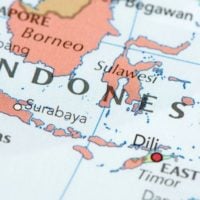Deadline: 28-Mar-23
The European Commission (EC) is currently accepting applications for Tackling Human and Climate Change Induced Pollution in the Arctic – Building Resilient Socio-Ecological Systems.
Scope
- Main environmental concerns in the Arctic stem from the loss of pristine environment and unique ecosystems. On one hand, ice melting allows for more people and economic activities to enter the area, and on the other hand, transboundary pollution brings into the Arctic contaminants whose sources are thousands of kilometres away.
- Arctic economic development is associated with a high risk of air and marine pollution, particularly from oil spills, local mining, Persistent Organic Pollutants (POP), heavy metals, radioactive substances, marine litter and plastics. Pollution from Arctic shipping and tourism relying on heavy diesel fuels induce greater ice melting pack and have negative effects on marine life. Pollutants from local and distant sources are taken up by organisms and incorporated into polar food webs, jeopardizing human and environmental health.
Funding Information
- The check will normally be done for the coordinator if the requested grant amount is equal to or greater than EUR 500 000, except for:
- Public bodies (entities established as a public body under national law, including local, regional or national authorities) or international organisations; and
- Cases where the individual requested grant amount is not more than EUR 60 000 (lowvalue grant).
Expected Outcome
- In line with the European Green Deal’s zero pollution ambition, successful proposals should contribute to protecting Arctic ecosystems. They should analyse main pollution sources in a climate change context, and examine ways to prevent or eliminate pollutants, consequently protecting environmental and human health and the quality of aquatic ecosystems. This will contribute to the implementation of the new EU policy for a peaceful, sustainable and prosperous Arctic, to the follow-up of the 3rd Arctic Science ministerial meeting and to the work of the Arctic Council.
- Projects results are expected to contribute to all of the following outcomes:
- Advanced scientific understanding of the impacts of pollution in the Arctic, including marine litter, emerging pollutants and plastic pollution, as well as diverse chemical discharges, and its interactions with the changing climate and thawing permafrost;
- Advanced understanding of the main ecological, socio-economic and health associated risks and challenges, following a One Health approach[1];
- Resilience and adaptation strategies identified for both ecosystems and human communities, in relation to the changes in Arctic. Design solutions and pathways for ecological and societal mitigation and adaptation;
- Contribute to making the case for the designation and, if applicable, contribute to the establishment management plans of MPAs in international Arctic waters.
- Assessment and monitoring tools developed for pollution impacts, using participatory approaches, citizen science and involving local and indigenous communities;
- Contribute to the implementation of the EU policy for the Arctic and the follow-up of the 3rd Arctic Science Ministerial meeting.
Eligibility Criteria
- To become a beneficiary, legal entities must be eligible for funding.
- To be eligible for funding, applicants must be established in one of the following countries:
- The Member States of the European Union, including their outermost regions.
- The Overseas Countries and Territories (OCTs) linked to the Member States.
- Countries associated to Horizon Europe.
- The following low- and middle-income countries.
For more information, visit EC.









































